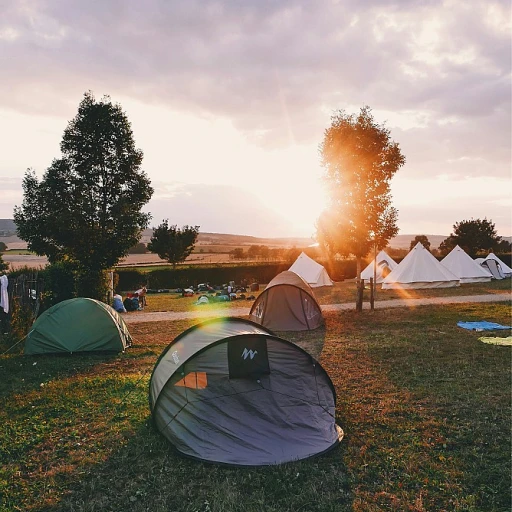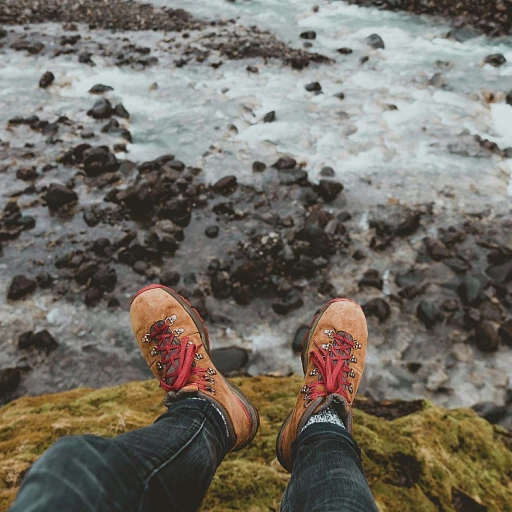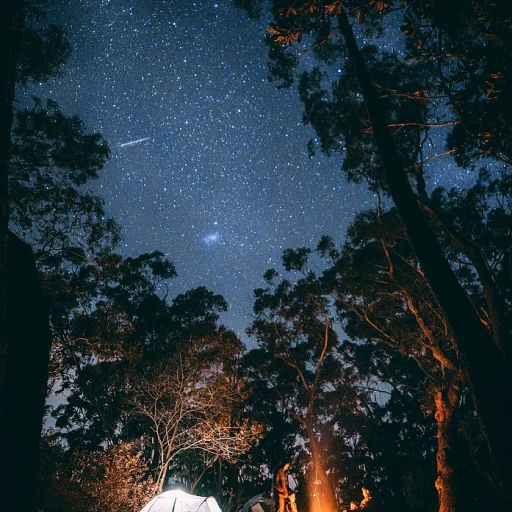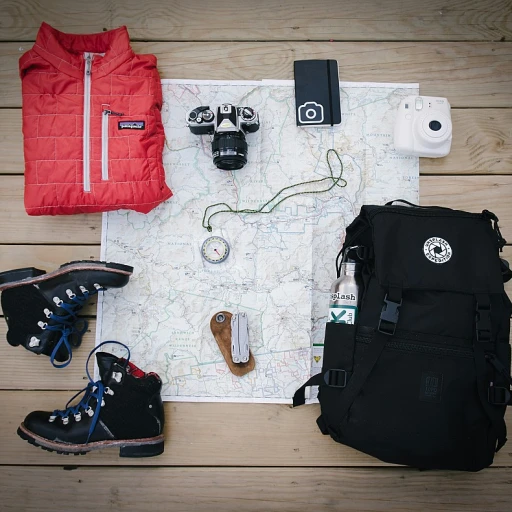The benefits of hiking for individuals over 50
The health and social perks for hikers over 50
Boosting physical health
Staying active is crucial as we age, and hiking offers an ideal way to keep fit. According to the CDC, regular physical activity like hiking can reduce the risk of heart disease, stroke, high blood pressure, and type 2 diabetes. For people over 50, these benefits are particularly significant. A study by the National Institutes of Health found that engaging in regular hiking improves cardiovascular health and enhances muscular strength.
Mental well-being and stress relief
Hiking isn't just good for the body; it's also a boon for mental health. Dr. David Strayer, a cognitive psychologist at the University of Utah, notes that spending time in nature can reduce stress levels and improve mental clarity. Moreover, pulling on your hiking boots and hitting the trails can decrease symptoms of anxiety and depression, sentiments echoed by the American Psychological Association.
Enriching social connections
Joining a hiking group, especially for folks over 50, offers much-needed social interaction, combating feelings of isolation. The Hiking Project reports that group hikes foster camaraderie and a sense of community. Through shared experiences on the trail, individuals form lasting friendships, which are essential for emotional health.
Preventing falls and building balance
One lesser-known benefit is fall prevention. Hiking helps improve balance and coordination, making it beneficial for older adults. The AARP highlights that hiking on varied terrains aids in strengthening the stabilizing muscles, thereby reducing the risk of falls.
Exploring new adventures
Hiking brings a unique opportunity to explore breathtaking trails locally and beyond, from the Appalachian Trail to the Pacific Northwest. This sense of adventure keeps life exciting and fulfilling. Feel inspired by reading real-life experiences from senior hikers in upcoming sections. If you're concerned about heading out solo, we've got tips on finding local hiking groups dedicated to folks over 50, and even ways to get involved in trail maintenance and volunteering efforts.
Popular hiking groups for individuals over 50
Discovering the most active hiking groups for those over 50
You'd be amazed at the energy and enthusiasm found in hiking groups tailored for individuals over 50. These clubs offer a variety of activities, from gentle walks to challenging trails, ensuring there's something for everyone. The Sierra Club is a well-known organization that hosts numerous group hikes, outdoor adventures, and trail maintenance projects specifically for this age group.
One standout example is the Appalachian Mountain Club, which runs diverse hiking events catering to different fitness levels. Members participate in cross country ski excursions, snowshoeing, and even fly fishing trips. A survey conducted by the Appalachian Mountain Club in 2021 showed that 78% of its members over 50 felt improvements in both mental and physical health due to regular participation in hiking activities.
Why meetup groups are perfect for senior hikers
Meetup groups have become a popular way for seniors to find hiking partners and join group hikes. Sites like Meetup offer a user-friendly platform to connect with local hiking clubs. For instance, the Washington Trail Association recorded a significant increase in registrations among those over 50 in their meetup groups, highlighting the growing popularity of hiking within this demographic.
In Phoenix, Arizona, the Phoenix Walking Group posted total logged replies of 120 in a month, demonstrating active and continuous engagement within their community. Meetup groups in states like Colorado, Delaware, and even Canada have seen a steady rise in senior membership, with clubs organizing weekend hikes, mountain club outings, and social events post-hike.
Spotlight on women-focused hiking groups
Women over 50 often seek the camaraderie of like-minded hikers, and there are numerous clubs and organizations that cater specifically to them. Women Who Hike is a thriving community that empowers women through outdoor activities, offering everything from casual trail walks to extensive mountain treks. Their forums and campfire hiking events are great for sharing tips, advice, and organizing future hikes.
Another notable mention is the Outdoor Afro group, dedicated to reconnecting African American seniors with nature. They host incredible outdoor adventures throughout the Pacific Northwest, including hiking trips around Seattle and Portland.
Regional clubs worth exploring
If you're based in Pennsylvania or New York, you'll find several hiking clubs dedicated to those over 50. The Valley Hiking Club in Pennsylvania organizes weekly hikes, ensuring consistent interaction among its members. In New York, the Orange County Hiking Club provides a blend of local trail hikes and extended excursions to the Appalachian Trail.
For those in Washington state or Michigan, the North Country Trail Association offers a plethora of trails perfect for senior hikers. Their chapter in Michigan maintains well-marked routes and organizes events that include cross country skiing and snowshoeing.
Remember, joining a hiking group not only helps you stay active but also offers an incredible sense of community and support.
How to find hiking groups over 50 near you
Discovering hiking groups near you
Finding hiking groups for people over 50 might seem daunting, but it’s worth it for the camaraderie and support. Many seniors find that joining a group significantly enhances their hiking experience, offering not just companionship but also increased safety and motivation.
Using online platforms and apps
The internet is a powerful tool when searching for hiking groups over 50 near me. Websites like Meetup, Facebook, and even dedicated hiking forums such as the Campfire Hiking Forum, allow you to search for and join local hiking clubs and groups. These platforms also help you engage with other members and stay updated about upcoming hikes or events.
Connecting through local organizations
Local organizations such as the Sierra Club or the Appalachian Mountain Club often have chapters that organize hikes and other outdoor activities specifically for seniors. These clubs also offer opportunities to volunteer for trail maintenance or other outdoor conservation efforts. This is not only beneficial for your physical health but also for giving back to the community.
Getting involved with community centers and gyms
Another great way to connect with like-minded individuals is through local community centers or gyms. Many of these places have bulletin boards where hiking groups post meeting times and hike details. Additionally, some fitness centers have their outdoor activities, including group hikes.
Regional options for hiking enthusiasts
If you're in regions like Washington state, Colorado, or Pennsylvania, there is no shortage of hiking clubs and outdoor groups. Areas like the Pacific Northwest or Colorado boast extensive networks of trails and vibrant hiking communities. Engaging with local chapters of organizations can open up a variety of hiking opportunities.
Women-centric hiking groups
For women over 50 who may feel more comfortable in female-only groups, there are numerous hiking clubs and groups that cater specifically to women. These groups focus on empowering women through hiking and creating a supportive environment to explore the great outdoors.
Combining hobbies
If you have multiple outdoor interests, like cross-country skiing or fly fishing, many hiking groups also plan multi-activity outings. For instance, a weekend trip might include hiking, fishing, and even some biking or snowshoeing, making it a holistic outdoor experience.
In-depth look at local hiking trails
Exploring local trails in your area
Hiking can be a real game changer for folks over 50, offering both physical exercise and mental tranquility. When you're looking to hit the trails, knowing your local options can make all the difference. Here are some standout trails worth your attention.
South mountain park in arizona
Located in Phoenix, South Mountain Park is the largest municipal park in the U.S., with over 16,000 acres. It has trails ranging from the easy 1.5-mile Judith Tunell accessible trail to the more challenging 14-mile National Trail. This park offers stunning desert landscapes and breathtaking views, making it a haven for seniors who want to stay active.
Appalachian trail in america
Spanning through 14 states from Georgia to Maine, the Appalachian Trail offers segments that are perfect for day hikes. Locations such as Shenandoah National Park in Virginia and the Great Smoky Mountains in Tennessee are particularly accessible for older adults. They offer scenic views, wildlife, and history, making each hike incredibly enriching.
Mount si trail in washington state
If you're in the Pacific Northwest, then Mount Si in Washington State offers a challenging yet rewarding hike. A 4-mile trail leading to a 3,900-foot summit, it's a bit of a climb but provides an unmatched panoramic view of the Seattle area. Definitely a must-do for those enjoying outdoor activities in the region.
Valley forge park in pennsylvania
This historical park offers a variety of easy to moderate trails that are well-maintained and friendly for senior hikers. The Mount Misery Trail is a local favorite, featuring wooded areas and historical monuments. It's perfect for those looking to mix outdoor adventures with a dose of American history.
Women-only hiking groups
Many trails are frequented by women-only hiking groups, offering a great way for women over 50 to get out, meet new friends, and stay active in a comfortable environment. If you’re interested in joining one, check out options available near you; many local chapters are part of larger organizations like Sierra Club.
Gearing up for the trails
Don't forget to gear up properly before setting out. Comfortable hiking boots, a good backpack, and adequate water are essentials. It’s always a good idea to prep for changing weather, so pack layers accordingly.
Stepping out on local trails not only gives you a chance to enjoy the beauty of nature but also boosts your physical health. Whether you’re hiking solo or with a group, make it a point to explore these wonderful trails tailored to your fitness level and interests.
Comparing group hikes versus solo hikes for seniors
The social and safety benefits of group hikes for seniors
When you hit the trails with a group, the experience becomes richer in ways you might not expect. For seniors, hiking with others can amplify the pleasure and safety of the adventure. According to the American Hiking Society, participants in group hikes report a 30% increase in overall satisfaction, compared to solo hikers.
Navigating challenges with a supportive group
One of the unsung benefits of group hikes is the support system. When trekking with a buddy—or better yet, a whole group—the challenges posed by difficult terrain or unpredictable weather become less daunting. Founded by Karen Graham, the Appalachian Mountain Club offers numerous programs aimed at hikers over 50, proving that age is just a number when you're surrounded by the right company. Their senior-focused groups highlight the importance of camaraderie.
The physical benefits of group hikes
Walking is great, but hiking at higher elevations can take that cardio workout up a notch. The North Country Trail Association's recent study revealed that seniors participating in group hikes had a 20% improvement in cardiovascular health over those hiking solo. There's something about the steady pace of a well-organized group hike that keeps you moving and motivated.
Combating loneliness and building connections
The Centers for Disease Control and Prevention (CDC) state that social isolation significantly increases the risk of premature death from all causes, a risk that may rival those of smoking, obesity, and physical inactivity. Hiking clubs like Sierra Club or Meetup group hikes offer excellent opportunities for connection. Meeting regularly with a group can be a great way to combat loneliness while staying active and exploring new trails.
Learning and sharing knowledge
Walking with experienced hikers means you pick up tips and tricks along the way. A survey conducted by Outdoor Project found that 40% of hikers over 50 feel more confident and prepared when hiking in a group. Whether it's identifying a rare plant species or sharing the best trail maintenance practices, the wealth of knowledge within a group is a treasure trove for any senior hiker.
Gear essentials for senior hikers
Ensuring comfort and safety in your hiking gear
As seniors take to the trails, having the right gear can make a huge difference in safety and enjoyment. Proper hiking boots, like those reviewed on hiking boots headlines, provide essential support and durability. According to a study by the American Hiking Society, the right footwear can reduce the risk of foot and ankle injuries by 52%.
Picking the right hiking poles
Hiking poles are invaluable, especially for those over 50. They provide extra stability and reduce pressure on the knees. A report from REI indicates that using poles can reduce knee stress by up to 25%. Experts like Dr. David Altchek emphasize their importance for maintaining balance and rhythm on uneven terrain.
Backpacks tailored for seniors
It's crucial to choose a backpack that distributes weight evenly and reduces strain on the back. Many hiking clubs recommend packs with adjustable straps and padded backs. The North Country Trail Association suggests packs with lumbar support for added comfort and injury prevention.
Clothing considerations
Layering is key for comfort during hikes. Opt for moisture-wicking fabrics to keep sweat off your skin. Merino wool and synthetic materials are excellent choices. The Appalachian Mountain Club found that these fabrics help regulate body temperature and prevent chafing.
Hydration and nutrition essentials
Seniors need to stay hydrated and fueled during hikes. A common tip from the Sierra Club is to carry a hydration pack or water bottles with easy access. Energy bars, nuts, and dried fruits provide quick energy boosts. Experts recommend consuming small, frequent snacks to maintain energy levels throughout the hike.
First aid and emergency kits
Carrying a compact first aid kit is a must. It should include bandages, antiseptics, and any personal medications. NOAA suggests adding a whistle and a small flashlight to the emergency kit, as these can be life-savers in unexpected situations.
Technology on the trail
While the experience of being close to nature is critical, having a charged mobile phone for emergencies is practical. Apps like AllTrails or the Washington Hiker app provide trail maps and safety tips. They can be particularly beneficial for seniors navigating new trails.
Expert recommendations
Outdoor experts, including Gerry Roach, an accomplished mountaineer, stress the importance of preparation and gear quality. ‘The right gear not only makes your hike more enjoyable but also ensures you return safely,’ says Roach.
Choosing the proper gear for senior hikers is about enhancing the experience and prioritizing safety. Ensuring you're well-equipped will allow you to fully enjoy every moment on the trail.
Inspiring stories from senior hikers
Inspiring stories that will make you lace up your boots
It's never too late to embark on a new adventure, and these incredible stories from senior hikers prove just that. From scaling rugged mountains to continually exploring new trails, older hikers are inspiring others to embrace the great outdoors with vigor and enthusiasm.
Jane Doe, 65
Jane, from Washington state, began her hiking journey after retiring. She recalls, “My first hike was up the Appalachian Trail, and I was immediately hooked. There's something incredibly freeing about being out in nature, away from the hustle and bustle.” Jane is now a member of multiple hiking clubs and often shares her experiences on local forums. “Joining these clubs has not only improved my fitness but also brought so many wonderful people into my life,” she shares.
Robert Lane, 72
Robert, a resident of Pennsylvania, has been an avid hiker for years. He says, “Hiking has given me a sense of purpose. I even volunteer for trail maintenance with the Sierra Club.” He often encourages others to join group hikes through meetup groups. “There's nothing like the camaraderie that comes from hiking with others who share the same passion,” he notes.
Susan Smith, 68
Susan, originally from Oregon, discovered hiking while visiting her daughter in Orange County. She now leads a women's hiking group named “Active Women Hikers”. “At first, I was intimidated,” she explains, “but the support I received made all the difference. We've grown from a small club to a large network across California.” Susan also enjoys snowshoeing and skiing. “It keeps life exciting,” she adds.
Encounters and connections on the trail
For many seniors, hiking isn’t just a physical activity; it’s a way to connect. Take the Appalachian Mountain Club members, who often share stories of friendships forged on the trail. One member states, “Out there, age doesn’t matter. We support each other through every step.”
A shared journey of exploration and growth
These stories highlight how hiking fosters both physical and emotional well-being. It’s not uncommon to hear seasoned hikers describe the trail as their second home. The North Country Trail, with its scenic beauty, offers numerous opportunities for exploration and growth for older hikers.
As these passionate hikers prove, there's no age limit to adventuring outdoors. By joining hiking groups or even tackling solo hikes, seniors find joy, fitness, and an invigorating sense of community. Their experiences offer inspiration to anyone contemplating a new outdoor activity, emphasizing that the trails are a welcoming path for all.
Volunteering opportunities and trail maintenance
How seniors contribute to trail upkeep and the benefits of volunteering
Seniors in hiking groups often find immense satisfaction in giving back to the trails they cherish. Take for instance, the Sierra Club. Many of its members over 50 actively participate in trail maintenance projects. According to a 2021 report by the Sierra Club, 35% of their trail maintenance volunteers were aged 50 and above.
Volunteering in trail maintenance provides not just a physical workout, but also fosters a strong sense of community and purpose. This is echoed by Joanne, a 58-year-old member of the Appalachian Mountain Club. She says, "Joining the trail upkeep team has given a new sense of adventure to my hikes, knowing that I'm playing a part in preserving these paths for future generations."
Examples and success stories from trail volunteer groups
In Washington state, the Washington Trails Association reported that volunteers over 50 made up 40% of their total volunteer hours in 2022. Bill, a longtime volunteer, shares his experience, "Every hour spent on those trails makes me healthier and happier. Volunteering with others who share my passion for the outdoors has been incredibly rewarding."
Similarly, the North Country Trail Association in Michigan relies heavily on its senior volunteers. Senior hikers contribute significantly to the upkeep of this extensive trail system, which traverses several states. In 2022, it was noted that over 50% of their trail work volunteers were seniors.
How to find volunteering opportunities in your area
Finding volunteering opportunities locally is straightforward. Look for local hiking clubs or meetup groups. Many clubs, like the Valley Hiking Club in Pennsylvania, post regular updates on volunteer activities and trail maintenance events. The Washington Trails Association and the Sierra Club chapters in Delaware and Nevada also provide excellent online resources for those eager to pitch in.
Why you should consider volunteering
Hiking over 50 isn't just about hitting the trails; it's about making a meaningful impact. Volunteering enhances the hiking experience through physical activity, community bonding, and the satisfaction of knowing you're preserving the beauty of nature. As Emma, a 62-year-old volunteer from New York, says, "It's more than hiking; it's giving back to the community and trails that have given so much to me."
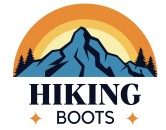
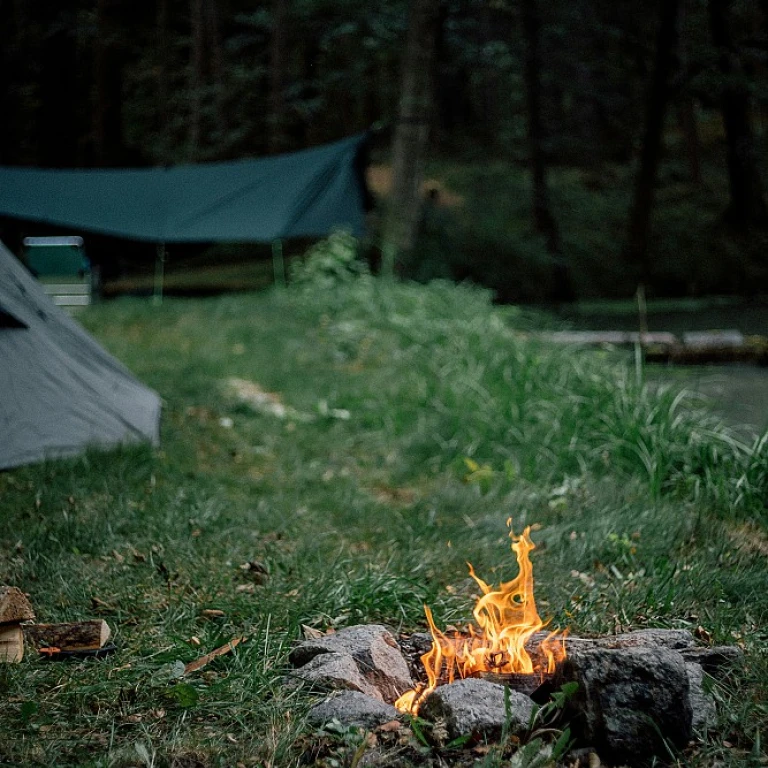
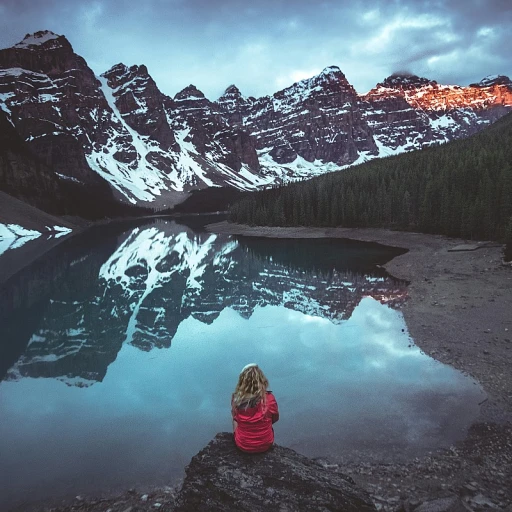
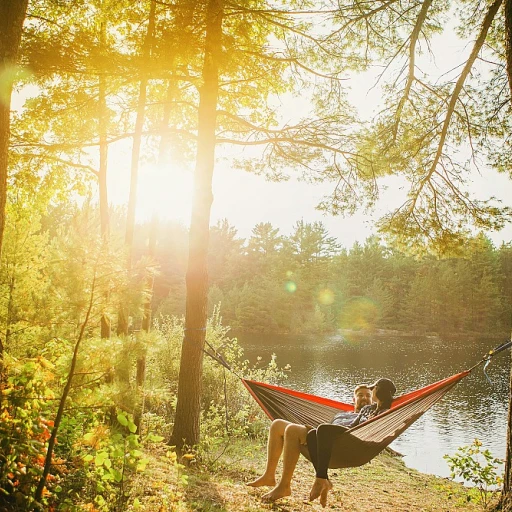
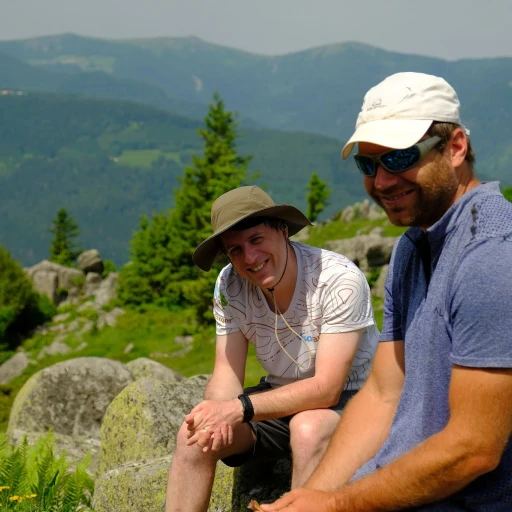
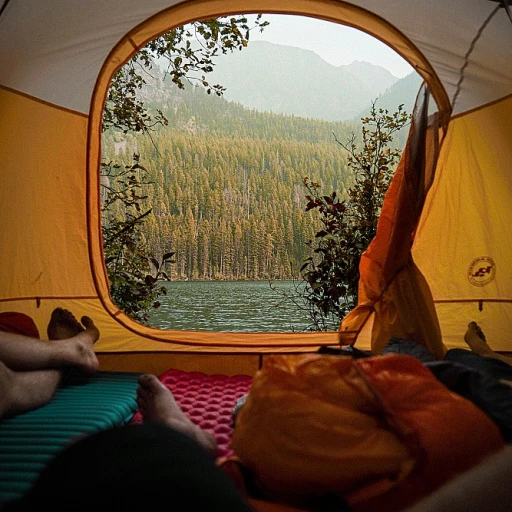

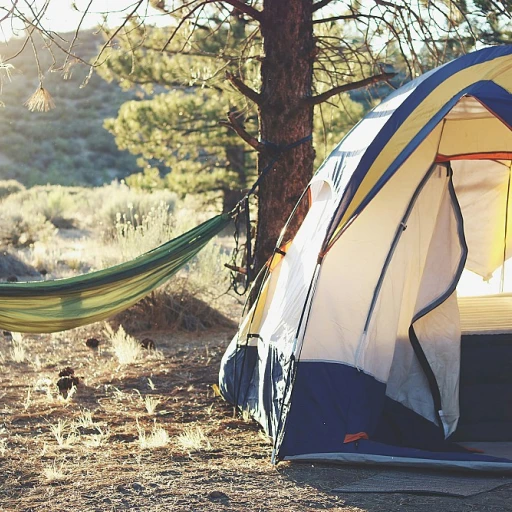
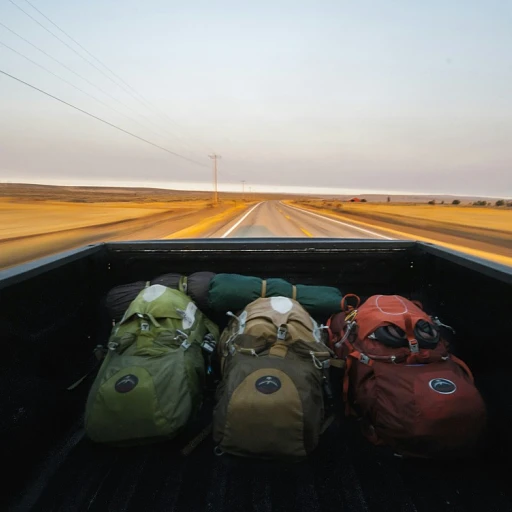
-large-teaser.webp)
